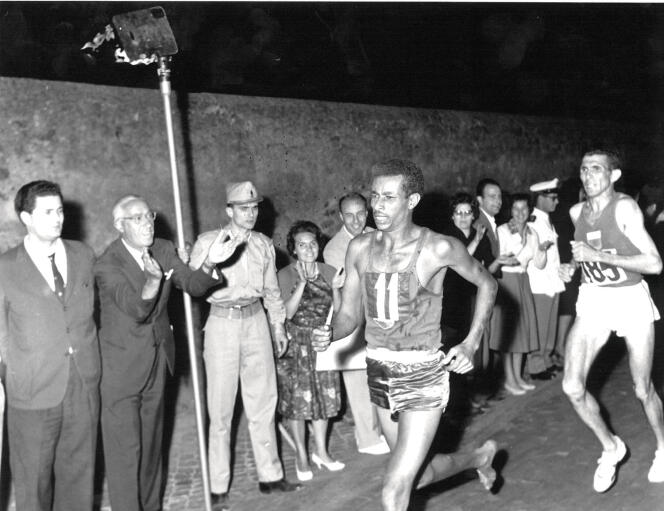
The human race cannot be summed up in a 100-meter dash or a marathon. But from the first modern Games, held in Athens in 1896, to the latest, being held in Paris this summer, the Olympics have been a faithful reflection of the world's troubles. So much so that, far from being a moment of truce, the Olympics are often the magnifying mirror of the ugliness and beauty of an era. This is highlighted by the exhibition Olympism: A History of the World, opening at the Palais de la Porte-Dorée in Paris on April 26.
It all makes sense, it all creates an echo chamber in the sporting arena: the diplomatically weighed choice of host cities, the glory of the organizing country, the patriotic tallying of medals, the honoring of this or that champion and the place in posterity of this or that match. The Olympic Games are a world within the world. "The struggles for parity and equality, and against racism, segregation and discrimination have all been recounted there, as have the great historical sequences of colonialism, the rise of nationalism and totalitarian powers and the Cold War," noted the introduction to the catalog (Editions de La Martinière, €65).
Rich in iconography that is sometimes famous and sometimes little-known (if not never-before-seen), the exhibition rooms provide much more than a sports chronicle. "This exhibition illustrates how the Olympic Games have aligned with the evolution of the world," said Constance Rivière, director general of the Palais. "At the same time, it debunks a number of myths." Starting with the neutrality of sport and athletes. "There is a link between champions and values," she stressed.
Exclusions, attacks, boycotts
Individual feats become universal symbols. Bodies are subjected to ideology, if not commodified or pumped up with hormones. Performances serve causes, for better or for worse. French tennis star Suzanne Lenglen, double gold medallist in 1920 at Antwerp, opened a breach in an exclusively male sphere. A four-time gold medalist in Berlin in 1936, American sprinter Jesse Owens was Adolf Hitler's dazzling contradiction. Ethiopian marathon runner Abebe Bikila – double Olympic champion in 1960 in Rome and 1964 in Tokyo –became the proud standard-bearer for an Africa liberated from colonialism.
The water polo match between the Soviet Union and Hungary at the 1956 Games left the pool red with blood, just as much a drama as the tanks in the streets of Budapest. On the 200-meter podium in Mexico City in 1968, the raised, black-gloved fists of Tommie Smith and John Carlos illustrated the anti-establishment ferment of those years just as much as a riot or barricades. Romanian gymnast Nadia Comaneci, three-time Olympic champion in Montreal in 1976, was intended to embody the superiority of a Communist model at its height. By winning the 400-meter hurdles in Los Angeles in 1984, Morocco's Nawal El Moutawakel became a symbol of female emancipation.
You have 43.65% of this article left to read. The rest is for subscribers only.